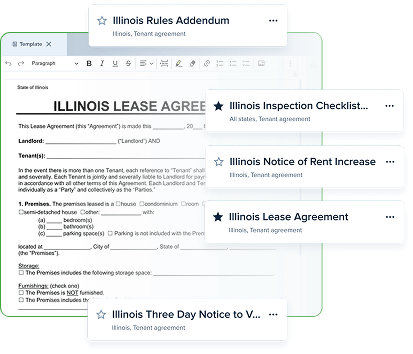Notice of Rent Increase
Many landlords find that writing a rent increase notice can be a difficult task. It can be difficult to determine the perfect price that is neither too high nor too low. The last thing a landlord wants is to lose a long-term tenant due to a rent increase, which is why providing a rent increase notice and allowing for an upfront and honest discussion is critical.
The Rent Increase Notice is a letter that a landlord sends to a tenant informing them that their rent will be increased. The letter can only be used for month-to-month rental agreements unless a conventional (fixed) lease is about to expire. The tenant always has the option to refuse the increase and depart the premises after receiving the notification.
Notice of Rent Increase
Properly inform tenants about rent rises.Generate a document with our document builder
Customize it using auto-fill elements if needed
E-sign and require signatures from tenants
What you need to know
What to include in a Notice of Rent Increase?
Landlords must include the following information in a notification of rent increase:
General information: The tenant's name, property address, landlord's name, and contact information are all required.
Information on the rental: Document the existing rent and the new, higher rate set forth in the original lease. Include the expiration date of the current lease and the deadline for replying to the notice of rent increase.
Space for responses: Include a section on the rent increase notification where the tenant may accept or reject the rent increase. This part should include a signature from the tenant acknowledging the rent increase to accept or deny.
How much can a landlord increase rent?
There is no restriction or limit on how much a landlord can raise the rent in most places without rent control.
It is good practice for a landlord to explain why the rent will be increased before sending a rent increase notice. Here are some reasons for increasing rent that are both understandable and practical:
Inflationary pressures.
Expenses for maintenance and utilities have risen.
Increases in state or local property taxes.
Added amenities or repairs to the unit that boost the market value.

